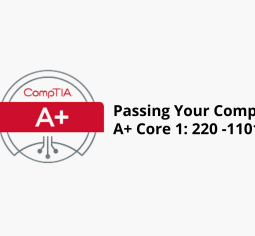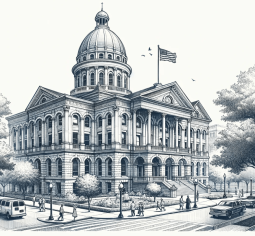NOUN – PAD 301: Inter-Governmental Relations
Course Content
Module 1: Foundations of Federalism – Unit 1: Evolution of Federalism
-
Module Introduction – Introduction to Foundations of Federalism
00:30 -
Module Learning Objectives
00:36 -
Origins of Federalism
00:29 -
Evolution of Federalism
00:35 -
Key Events in the Evolution of Federalism
00:43 -
Modern Federalism
-
Unit Summary
-
Unit 1 Quiz: Self Assessment
Module 1: Foundations of Federalism – Unit 2: Meaning and Nature of Federalism
Module 1: Foundations of Federalism – Unit 3: Models of Federalism
Module 1: Foundations of Federalism – Unit 4: Rationale for Federalism
Module 1: Foundations of Federalism – Unit 5: Theoretical/Ideological Perspectives of Federalism
Module 2: Intergovernmental Relations and Governance – Unit 1: Models of Intergovernmental Relations
Module 2: Intergovernmental Relations and Governance – Unit 2: Structures and Patterns of Intergovernmental Relations
Module 2: Intergovernmental Relations and Governance – Unit 3: Allocation of Jurisdictional Powers
Module 2: Intergovernmental Relations and Governance – Unit 4: Federal-State-Local Government Relations
Module 2: Intergovernmental Relations and Governance – Unit 5: Institutions for Managing Intergovernmental Relations
Module 3: Global Perspectives on Intergovernmental Relations – Unit 1: Intergovernmental Fiscal Relations in Nigeria
Module 3: Global Perspectives on Intergovernmental Relations – Unit 2: Intergovernmental Relations in America
Module 3: Global Perspectives on Intergovernmental Relations – Unit 3: Intergovernmental Relations in Brazil
Module 3: Global Perspectives on Intergovernmental Relations – Unit 4: Intergovernmental Relations in India
Module 3: Global Perspectives on Intergovernmental Relations – Unit 5: Intergovernmental Relations in Canada
About Course
The “PAD 301: Intergovernmental Relations” course is a specialized program designed for students undergoing a Doctor of Philosophy Degree Programme in Public Administration at the National Open University of Nigeria (NOUN). It aims to provide a comprehensive understanding of the concepts and theories in Intergovernmental Relations as they affect Public Sector organizations in Nigeria and enable students to apply these concepts and theories to the tasks and roles they perform as Administrators, Policy Analysts, and Programme Managers in the Public Sector setting.
The course is structured into 15 units divided into three modules:
Module 1: Foundations of Federalism
This module covers the evolution, meaning, nature, models, rationale, and theoretical/ideological perspectives of federalism, which are all foundational concepts necessary to understand federalism in its entirety.
Unit 1: Evolution of Federalism
Unit 2: Meaning and Nature of Federalism
Unit 3: Models of Federalism
Unit 4: Rationale for Federalism
Unit 5: Theoretical/Ideological Perspectives of Federalism
Module 2: Intergovernmental Relations and Governance
This module delves into the models, structures, and patterns of intergovernmental relations, the allocation of jurisdictional powers, relations between different levels of government, and the institutions that manage these relations, all of which are crucial for effective governance in a federal system.
Unit 1: Models of Intergovernmental Relations
Unit 2: Structures and Patterns of Intergovernmental Relations
Unit 3: Allocation of Jurisdictional Powers
Unit 4: Federal-State-Local Government Relations
Unit 5: Institutions for Managing Intergovernmental Relations
Module 3: Global Perspectives on Intergovernmental Relations
This module provides a comparative analysis of intergovernmental relations in different countries, including Nigeria, America, Brazil, India, and Canada, offering a global perspective on how intergovernmental relations are managed in different contexts.
Unit 1: Intergovernmental Fiscal Relations in Nigeria
Unit 2: Intergovernmental Relations in America
Unit 3: Intergovernmental Relations in Brazil
Unit 4: Intergovernmental Relations in India
Unit 5: Intergovernmental Relations in Canada
Each unit has specific objectives, and the course has overall objectives that encompass all the units. For example, some of the overall objectives of the course include understanding the evolution, meaning, and nature of federalism, the models of federalism, the rationale for federalism, and the theoretical/ideological perspectives of federalism.
The course material includes a course guide, study units, and references.
Please note that this course operates autonomously and is not officially connected to, or in any way affiliated with the National Open University of Nigeria (NOUN). Our material is a supplemental tutorial put together by subject matter experts to help solve the study problems being encountered by NOUN Students. We advise students to stick to the University recommended textbooks for this course which we also referenced throughout this course.
We will continue to work to update the courses with the most recent updates if any. We enthusiastically look forward to your involvement in this enlightening and transformative program.
Referenced Materials
Course Code: PAD 301
Course Title: Intergovernmental Relations
And Other External Resources
Instructor
Student Ratings & Reviews























